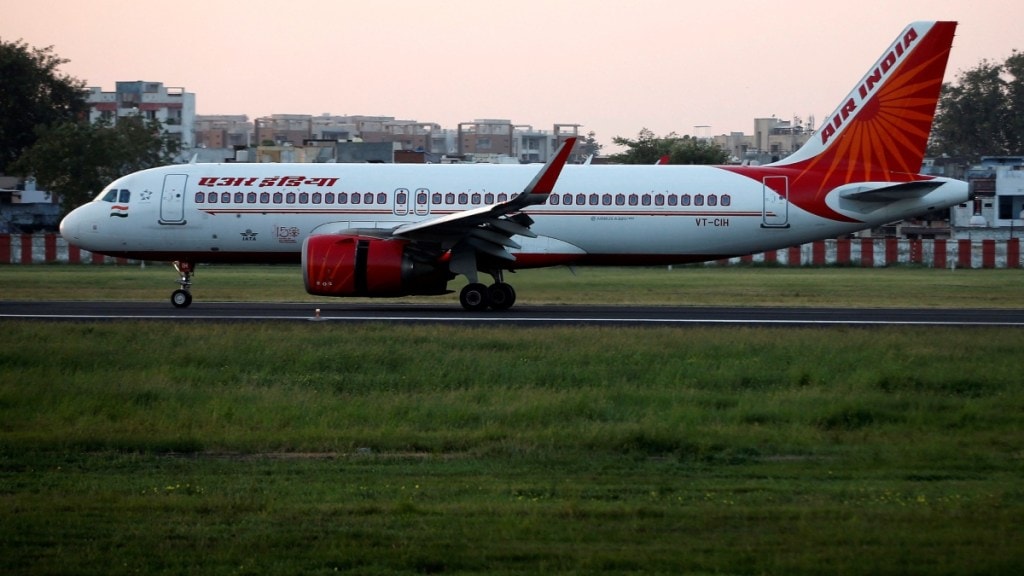Over the last four weeks, four Air India (AI) group flights made emergency landings at various airports across the country. The reasons ranged from the plane’s engine catching fire to windshield cracking 10 minutes after take-off.
The former flag carrier faced maximum flak for a Delhi-San Francisco flight which faced a 30-hour delay, forcing the regulator to issue a show-cause notice to the airline over ‘repeated incidents for passengers being put into discomfort.’
But that’s just one set of problems that AI CEO Campbell Wilson has been grappling with as he completed two years at the helm last Saturday. The other issues that have made the headlines are cabin crew protests leading to flight cancellations, customer complaints about broken seats, poor in-flight food, non-functional entertainment units and lost luggage.
But Wilson, a former Singapore Airlines top executive, knows such air pockets are inevitable in the transition process of AI, which is desperately seeking to get back its lost glory in a market that is changing rapidly. The stated ambition to become a “world class global airline” may be hard to swallow for many Indian flyers and may well sound impossible, but Wilson is unfazed and is firm on steering the airline on that path.
As recently as April, Wilson announced the start of the final of the three phases of the airline’s five-year transformation plan called Vihaan.AI. After ‘Taxiing and Take-off’, the airline moved to ‘Climb’ where the ambition of becoming world-class global airline has to be realised. Earlier this month, he hosted a meeting that was attended by 100 executives from various functions. According to one such executive who spoke to Fe, the meeting benchmarked AI against some of the best airlines in the world.
Having secured the regulatory approvals for the merger of Vistara into AI and Air Asia India with AI Express, its low-cost subsidiary that competes with market leader Indigo, Campbell is now planning to press the pedal. The workshop was a step in that direction.
“You cannot take away Wilson’s contribution in terms of transforming this erstwhile government-owned giant. There have been lapses in our operations; we admit that we have to do a better job. But there has been considerable progress,” the executive added.He is bang on. The path AI has taken to change the organisational culture is breath-taking. Take for example the fact that the average age of AI employees has been brought down from 54 to 34. For an airline whose employees preferred to communicate through g-mails as the airline’s internal systems just didn’t function, AI has made giant leaps to make technology and innovation the cornerstone of its business.
Internally, many in the airline contend that changing the operational construct of an ongoing entity is a sensitive matter “because somewhere someone would definitely feel neglected or left out.” “Being in the service industry, passenger comfort is of the utmost importance, but employees ensure that the standards are maintained, and management ensures that employees are satisfied. Wilson has been able to perform this task well,” another executive said.
Many, however, do not agree with that. After all, the AI Express merger saw agitated cabin crew taking sick leave en masse in May, leading to hundreds of flight cancellations for the airline over several days. At Vistara, a stretched roster and unhappy pilots reduced the airline’s network capacity by 10% in April this year.
Induction of new aircraft which are a part of the 470 on order has brought a welcome refresh to AI’s fleet, though the toll of legacy, a word with which Wilson is apparently unhappy, has had its effect. Other employees whom Fe spoke to said that the strain of a legacy carrier, waiting for new equipment, and growing expenses have become huge irritants for the top management.
After the merger, the next big project for Wilson is to pilot the setting up of the airline’s own engineering centre and training academy.“He does not want to be dependent on any third party, especially where the failure of services is at risk,” a third airline employee said. Over the next 18 months, AI hopes to kickstart its in-house line-maintenance and set up base maintenance facilities for narrow-body and wide-body aircraft in Bengaluru, in partnership with Singapore Airlines Engineering Company.
The motivation of staying on course for revamping the airline is huge. After all, India is the third largest aviation market in the world by passenger volume, yet it only has a per capita travel of one-fifth that of China. So the upside is tremendous. For the moment, however, Wilson’s main job is mostly to maintain a balance between fighting the airline’s existing legacy issues and exploiting its tremendous future potential.
